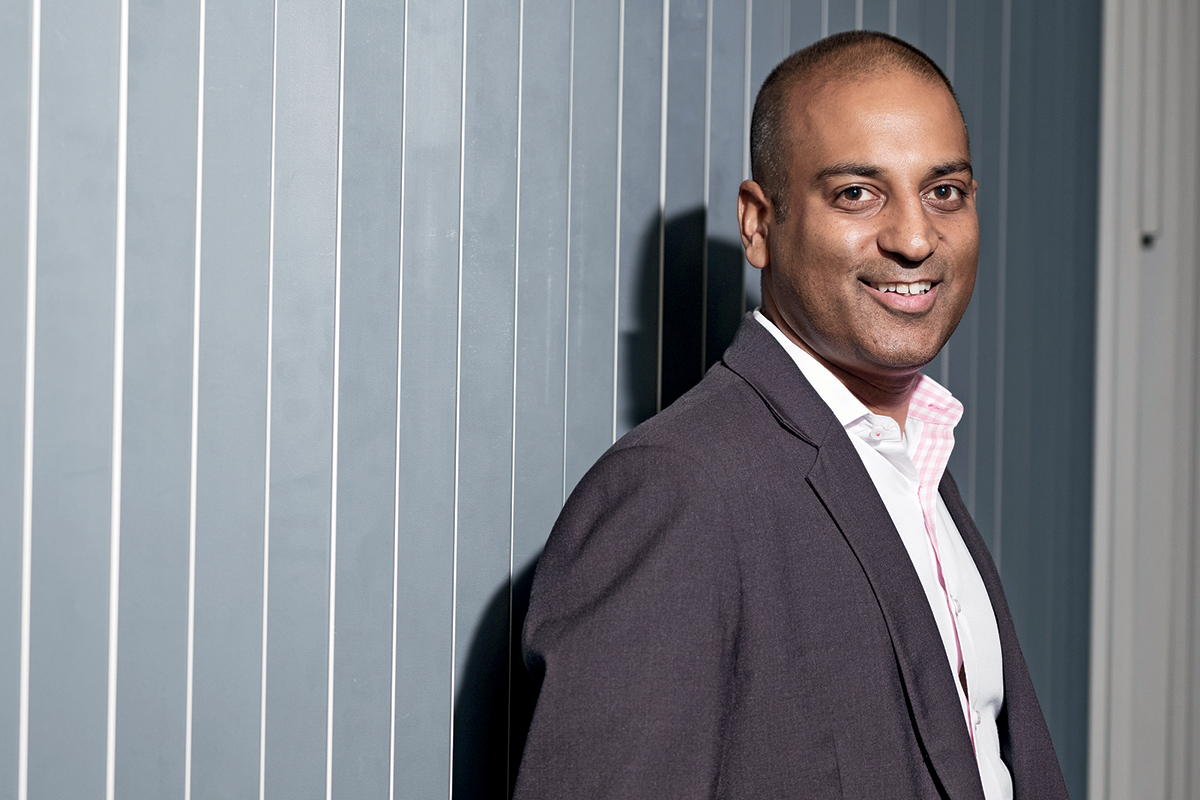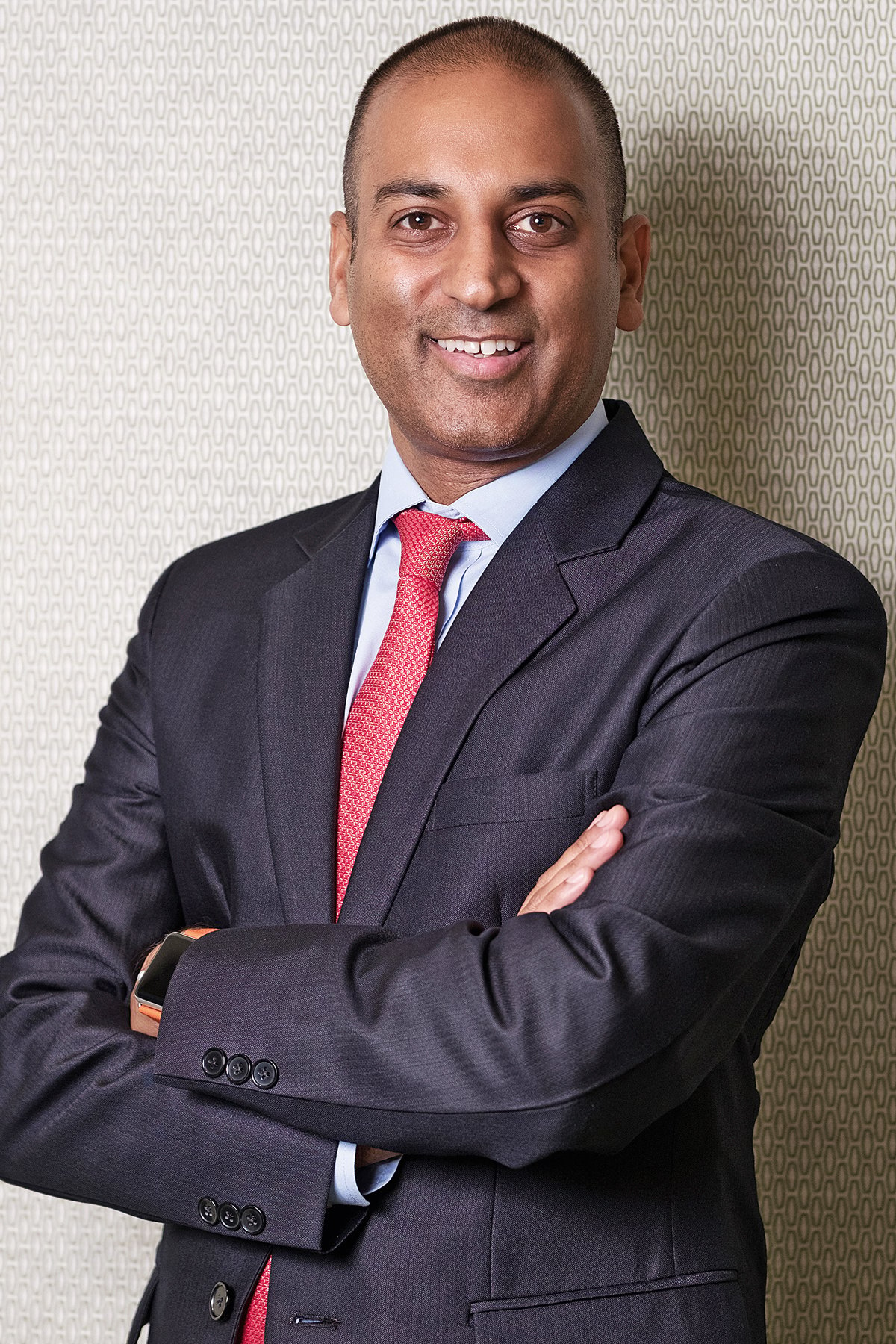Years before he became Singapore Health Leader with Mercer Marsh Benefits, Neil Narale had a different career path in mind. “My dream job was to be a runner,” he says. “I spent quite a bit of time running track and field, and cross-country. What I loved was the discipline of training, timing, setting goals, reaching milestones the mental aspect of the sport, not just the physical aspect – and taking care of my health.”
Though he never ended up going professional as a runner, Neil has kept up the regimen and training in support of a healthy lifestyle. Moreover, the regimen, training and discipline contribute to Neil’s leadership qualities. While his perseverance and dedication has been built up from physical exercise, Neil’s style of leadership has been informed by a prominent figure in his childhood – his elementary school vice principal. “He was a very humble individual,” Neil recalls. “What I remember about him is he spoke to everyone with the same tone of respect – teachers, janitors, students close to graduating, or those in lower grades. He spoke to them all in a similar respectful manner.”

Cultivating collaborative culture
Neil’s leadership style these days is marked by that same egalitarianism, as well as his vice principal’s good humour and use of stories to make a point. For example, when the business enacts a growth strategy, it’s not Neil’s strategy, it’s the team’s strategy. He’s instituted a culture of collaboration, of idea sharing, where open dialogue with the boss is not something the team needs to feel hesitant about. Most importantly, Neil has cultivated trust and loyalty, thanks to his emphasis on cooperation.
Neil has been with the Mercer family since 2003, having started in Canada, before transferring to India and then eventually Singapore, where he’s been for the past five years. While it was a challenging prospect for him to take up different roles and responsibilities with no guarantee of success, the transfers and cross-cultural experiences have been instrumental in his professional development.
“They made me resilient both personally and professionally,” he says, “to the point where I wish I’d taken up these international opportunities earlier in my career. And I had many. I was just scared to take them. If I could go back in time, I’d take on more of them, because I can now see and understand how these openings have helped my personal and professional growth. The prospect is challenging but it does create a lot of resilience.”
“The prospect is daunting but it does create a lot of resilience.”
These days, he considers this kind of adaptability essential to being a leader. A good leader can’t let their ways be set in stone. An example of Neil’s own adaptability comes from when he first stepped into a leadership position. He was working long hours in the office, far beyond the point where working becomes overworking. As a result, his team began to work similar hours, believing this was what was expected. But not only did Neil stop enjoying his work, but the work environment as a whole became unhealthy as well. Upon realising this, Neil decided to adopt a smarter way of working and his team followed. Along with an improvement in his own morale, he saw his team responded better and were more engaged in their work.

From goals to growth
The benefits of flexibility also translate to a company level. The health insurance industry continues to be overhauled by technological innovation, and adaptation is a necessity. “We acquired an organisation called Thomson’s Online Benefits and its digital benefits platform, Darwin,” Neil explains. “And this has changed the way we now deliver benefits to our clients tremendously, the way they administer benefits, and the way their employees access benefits. This has allowed us to stay relevant with the millennials and also stay competitive.”
This is one of Neil’s three goals for the company. The second is around improving the quality of health care, and having customers maintain good health to head off conditions before they arise. This includes a communication initiative, which is particularly crucial given that while people are living longer, they are not necessarily getting healthier.
“What we’re trying to do is build awareness around activities that can be performed now, so that individuals can lead healthier lives and understand ways to be more aware of their health conditions,” says Neil. “Perhaps they can go in for regular health screenings before something turns into a chronic condition. And so, we spend a lot of time on communication and raising awareness with our clients.”
“We spend a lot of time on communication and awareness with our clients.”
Neil’s third goal is to keep the costs of health benefits manageable for Mercer Marsh Benefits’ customers. Ideally, prices would be kept affordable and stable, saving customers any unpleasant surprises. The key for these three aims – technology, health care quality and costs is to keep them balanced while still increasing the employee value proposition for an organisation.
In running, the key to improvement is making gradual, continual progress. As a seasoned runner, Neil gets this; after all, he didn’t start out running eight kilometres in half an hour. So, as he continues to improve himself as a leader, he applies this same philosophy. “What I do when I struggle with motivation is I have a mental reset. I set a new goal and say, ‘Okay, perhaps what we need to do is set a goal that is a little more attainable. And once we’ve hit that milestone, let’s set the bar a little higher, and then a little higher, and a little higher again’.”


